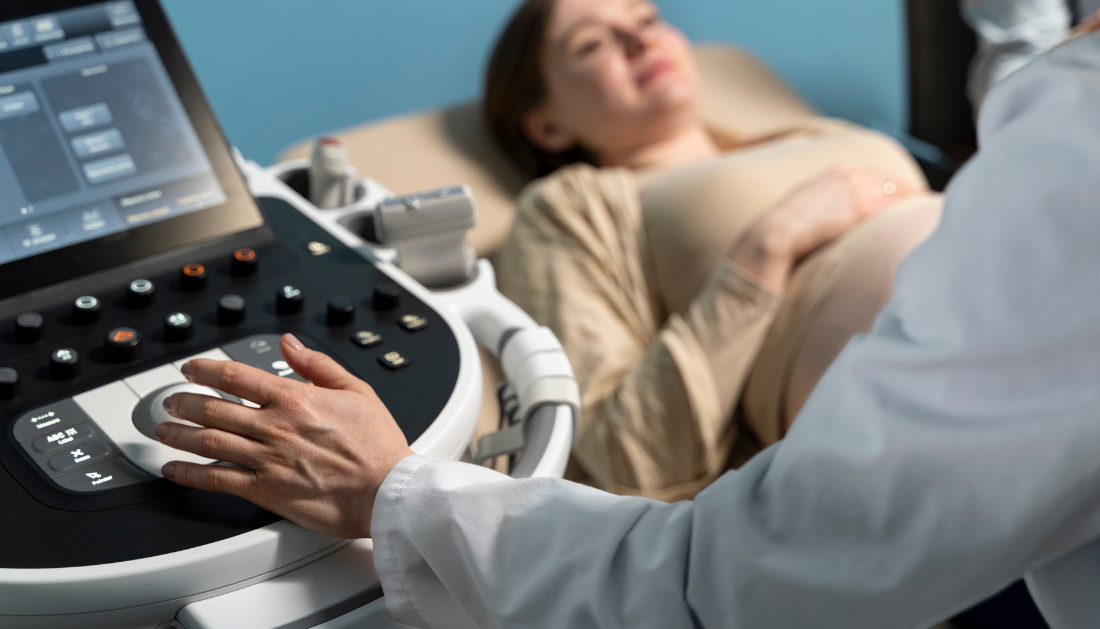

A revolutionary screening tool for pre-eclampsia, a potentially fatal illness that affects pregnant women and their unborn children, is about to be tested by researchers.
Researchers from Saint Mary’s Managed Clinical Service, part of Manchester University NHS Foundation Trust (MFT), in partnership with The University of Manchester and the Nottingham Clinical Trials Unit at the University of Nottingham, are leading the Screen and Treat with Aspirin to Reduce Pre-eclampsia (STARshiP) study.
STARshiP, which examined 200,000 women and their offspring, is one of the biggest studies in the field of prenatal screening.
The University of Manchester is a sponsor of the trial, which is funded by the National Institute for Health and Care Research (NIHR) and aims to change prenatal care for the disorder.
Some pregnant women may experience pre-eclampsia, which often develops in the second half of the pregnancy (beginning at 20 weeks) or shortly after the baby is delivered.
Urinary protein and elevated blood pressure are early indicators of pre-eclampsia.
There are currently few methods to identify patients who may be at risk, despite the fact that the illness affects up to 8% of pregnancies.
The STARshiP trial will measure the benefit of the screening, which is provided by the researchers concurrently with the early pregnancy scan, in order to better identify women who are more likely to develop the condition and to prescribe aspirin as a prophylactic medication.
Important aspects of the STARshiP investigation consist of:
Combined Screening Method Using the Fetal Medicine Foundation Test: The STARshiP trial will introduce a novel way to screen for pre-eclampsia, which entails measuring placental hormones in the blood and taking extra measurements during the first trimester ultrasound scan.
Aspirin medication to lower the risk of pre-eclampsia: Under the new screening approach, pregnant individuals who are deemed high-risk will be prescribed aspirin in accordance with regular NHS care. It has been demonstrated that aspirin is a safe, economical medication that can lessen pre-eclampsia’s incidence and severity.
Effective Trial Design: The screening test will be adopted in all participating maternity hospitals before the end of the STARshiP research, since the screening test is planned to be rolled out across these facilities. This kind of research study is referred to as a “stepped wedge clinical trial” and is an effective method of carrying out a clinical trial, giving everyone the chance to attempt administering the exam during the study.
The STARshiP research project will encompass eighteen maternity facilities located in the East Midlands and North of England regions. Saint Mary’s Managed Clinical Service (MCS) at MFT will implement it at all three of its locations: Wythenshawe Hospital, North Manchester General Hospital, and Saint Mary’s Hospital.
Chief investigators of the STARshiP trial are Dr. Lucy Higgins and Professor Jenny Myers of the University of Manchester.
Professor Myers, Clinical Professor at The University of Manchester and Consultant Obstetrician, Maternal and Fetal Health Research Centre, Saint Mary’s Hospital, said: “The immense promise this trial has in demonstrating the impact of a more effective screening test for pre-eclampsia and reducing the burden of this devastating pregnancy complication is more relevant than ever.”
Dr Higgins, Senior Clinical Lecturer at The University of Manchester and Honorary Consultant Obstetrician, Maternal and Fetal Health Research Centre, Saint Mary’s Hospital, said: “By integrating improved early screening, we aspire to mitigate the risks associated with this condition and improve maternal and fetal outcomes.”
“Women need to know if they are at risk of pre-eclampsia both so they can be prepared and to ensure clinicians target the right care to them. This study will hopefully help find one more piece in the pre-eclampsia jigsaw and we will be fully supporting the trial.”- Marcus Green, CEO, Action for Pre-eclampsia (APEC)
Dr Jane Harvey, a representative from the Patient and Public Involvement Group (PPI) said: “I never thought I was at risk of pre-eclampsia, when it happened it was terrifying. It is absolutely fantastic that this new test could potentially prevent this life-changing disease from affecting the lives of so many families.”
Jane Daniels, Professor of Clinical Trials at the Nottingham Clinical Trials Unit at the University of Nottingham, said: “NCTU are excited to be coordinating another large screening study in pregnancy. Although these studies take time, we hope that the results will ensure the best method of identifying at-risk pregnancies, is available for everyone.”
more recommended stories
 Pediatric Crohn’s Disease Microbial Signature Identified
Pediatric Crohn’s Disease Microbial Signature IdentifiedKey Points at a Glance NYU.
 Nanovaccine Design Boosts Immune Attack on HPV Tumors
Nanovaccine Design Boosts Immune Attack on HPV TumorsKey Highlights Reconfiguring peptide orientation significantly.
 High-Fat Diets Cause Damage to Metabolic Health
High-Fat Diets Cause Damage to Metabolic HealthKey Points Takeaways High-fat and ketogenic.
 Acute Ischemic Stroke: New Evidence for Neuroprotection
Acute Ischemic Stroke: New Evidence for NeuroprotectionKey Highlights A Phase III clinical.
 Statins Rarely Cause Side Effects, Large Trials Show
Statins Rarely Cause Side Effects, Large Trials ShowKey Points at a Glance Large.
 Anxiety Reduction and Emotional Support on Social Media
Anxiety Reduction and Emotional Support on Social MediaKey Summary Anxiety commonly begins in.
 Liquid Biopsy Measures Epigenetic Instability in Cancer
Liquid Biopsy Measures Epigenetic Instability in CancerKey Takeaways Johns Hopkins researchers developed.
 Human Antibody Drug Response Prediction Gets an Upgrade
Human Antibody Drug Response Prediction Gets an UpgradeKey Takeaways A new humanized antibody.
 Pancreatic Cancer Research: Triple-Drug Therapy Success
Pancreatic Cancer Research: Triple-Drug Therapy SuccessKey Summary Spanish researchers report complete.
 Immune Cell Epigenome Links Genetics and Life Experience
Immune Cell Epigenome Links Genetics and Life ExperienceKey Takeaway Summary Immune cell responses.

Leave a Comment